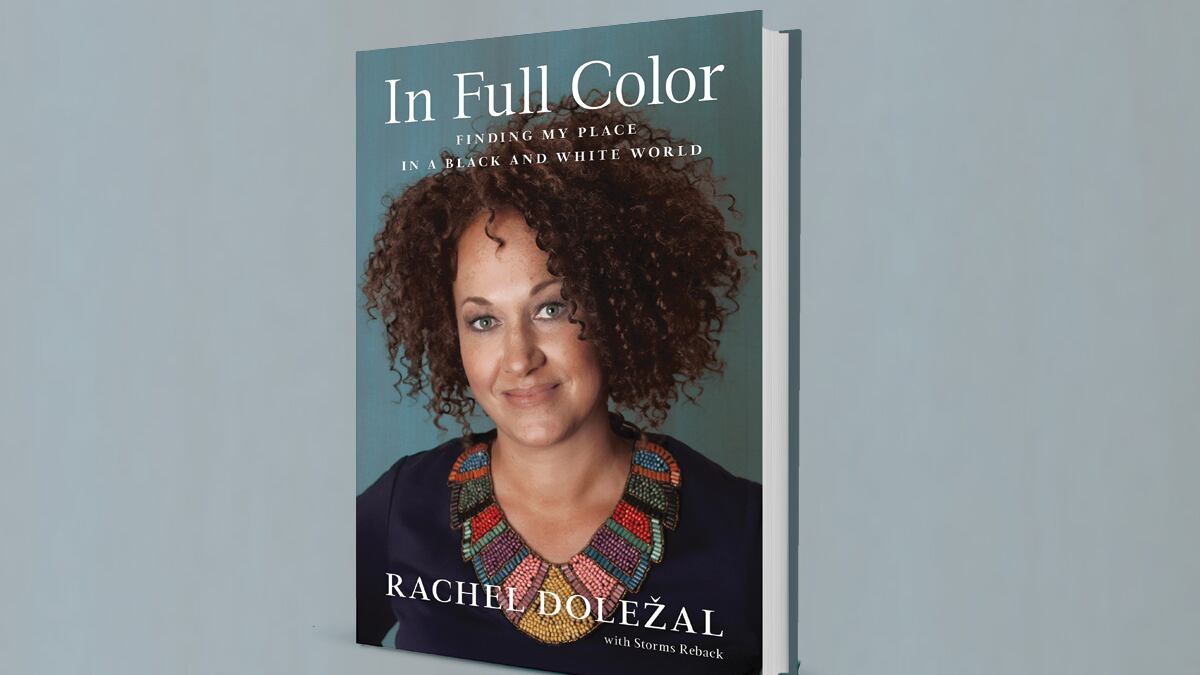BY DANIEL T WALTERS
Spokane is over Rachel Dolezal.
Spokane is over the white, former local NAACP president, who bronzed her skin and claimed to be black, the same way you're over your ex. You're fine, you don't think about her, she doesn't matter to you, you've long ago moved on—until you find yourself unreasonably irritated that someone mentions her.
Or when she writes a book.
Dolezal's new memoir, In Full Color, has meant yet another round of international media outlets parachuting into Spokane, eager to explore the slippery nature of racial self-conception.
Spokane hasn't joined in. There was no release party at our local independent bookstore. Local media haven't breathlessly passed along her new claims. The current Spokane NAACP president winced and wearily shook his head when he saw me holding Dolezal's book in the coffee shop.
In Spokane, we know more about Dolezal than the various colors of her skin. She used to write a column for The Inlander, just a few pages away from where my own byline appears.
We know her lies went beyond claiming to be black. Her parents never beat her with a "baboon whip." She never lived in South Africa. Her father wasn't a black former Oakland police officer who'd escaped the South on a "midnight train." Many of the hate-crime claims she made turned out to be fabrications, or misinterpretations, or—at minimum —dubious.
Yet In Full Color asks you to believe Dolezal. This time. She writes about a procession of child abuse and molestation and rape and domestic violence and racism. It's all horrifying, if true.
"If true" is the ballast that sinks the book.
Here, she introduces several new falsehoods without bothering to clear up the old ones. She fires back at anyone who accuses her of faking her hate-crime claims with first-of-all-how-dare-you bombast. But she never explains why, for instance, she went on local TV to portray an apology letter as a racist threat. Her claim in her memoir that she turned the letter over to police without opening it is, let's say, undercut by footage of her holding the opened letter.
But the most absurd allegation in In Full Color is Dolezal's grand conspiracy theory. She suggests she was unmasked because former Spokane Police Chief Frank Straub, ostensibly angered by her dogged commitment to justice, hired a private detective to follow her and dig into her "integrity issues."
She even says the mayor and city council president sent her a letter revealing she'd been followed by a private investigator.
"That is a completely inaccurate statement," Spokane City Council President Ben Stuckart counters.
A private investigator did investigate Dolezal, but he says he wasn't working for Straub or following Dolezal, and there's no reason to believe he's the one lying. That investigator also wasn't responsible for exposing her lies to the public. Two journalists from the Coeur d'Alene Press did that. They get only the briefest of mentions in the book.
Dolezal says she's an honest person, but to be seen as who she truly is, she's had to "gloss over or hide much of my complex past in favor of simpler stories that I felt would make more sense to other people."
Yet she's still telling simple stories. In nearly every scene in In Full Color, she paints herself in one of two colors. First, there's Rachel the victim—as when she fumes over being passed over for director of the Human Rights Education Institute, which hired a part-Jewish white man, leaving her convinced it was because "she was viewed as a poor young Black woman." Second, there's Rachel the hero: "When a pipe bomb was found in a backpack along the route of the MLK Day march in Spokane in 2011, I pressed authorities to find the culprit."
What she isn't is sorry.
Beyond a perfunctory sorry-if-anyone-got-hurt aside in the prologue, Dolezal ardently refuses to take responsibility for the damage she did to her community and causes. She doesn't discuss how her name is thrown in the face of transgender activists. She has no interest in talking about how right-wing bloggers used her story to falsely accuse black New York Daily News columnist Shaun King of being white. Nor does she consider how her shaky hate-crime claims gave ammunition to those arguing all hate-crime claims are bogus. It's why Spokane Spokesman-Review columnist Shawn Vestal recently called her "the Northwest's biggest gift to white supremacy since [Aryan Nations founder] Richard Butler."
In Full Color is a story with an unintended moral: When you sacrifice truth in your eagerness to speak truth to power, it's the power structures that grow stronger.
Daniel Walters is a staff writer at The Inlander in Spokane, Wash. Rachel Dolezal's memoir, In Full Color, was published March 28.
